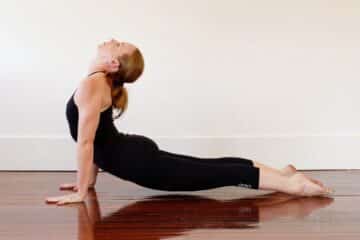Hatha Yoga, with its emphasis on physical postures (asanas) and breath control (pranayama), offers a profound journey toward holistic well-being.
At the heart of this ancient practice lies the concept of alignment—a harmonious integration of body, mind, and spirit.
In this article, we delve into the significance of alignment in Hatha Yoga and explore how alignment workshops can enhance your practice.
Understanding Alignment in Hatha Yoga
Alignment in Hatha Yoga refers to the proper positioning of the body in each posture to achieve optimal balance, stability, and energy flow.
It involves aligning the skeletal structure, engaging the muscles mindfully, and coordinating breath with movement.
Proper alignment not only enhances the physical benefits of yoga but also promotes mental clarity and spiritual growth.
The Role of Alignment Workshops
Alignment workshops serve as invaluable platforms for students to deepen their understanding of Hatha Yoga postures and refine their practice.
These workshops are typically led by experienced instructors who offer personalized guidance and hands-on adjustments to help students explore their body’s potential and overcome limitations.
Key Components of Alignment Workshops:
- Anatomy Awareness: Understanding the anatomical principles underlying each posture enables students to align their bodies more effectively and prevent injuries. Alignment workshops often include anatomical discussions, visual aids, and experiential learning exercises to enhance students’ body awareness.
- Prop Usage: Props such as blocks, straps, and bolsters are indispensable tools in aligning the body correctly and accommodating individual differences in flexibility and strength. Alignment workshops teach students how to use props effectively to support their practice and deepen their stretches without strain.
- Breath Awareness: Breath awareness is integral to aligning the body and calming the mind in Hatha Yoga. Alignment workshops emphasize the importance of synchronizing breath with movement and maintaining steady, conscious breathing throughout the practice.
- Mindfulness Practices: Cultivating mindfulness is essential for refining alignment and deepening the mind-body connection in yoga. Alignment workshops often incorporate mindfulness techniques such as meditation, body scanning, and visualization to help students develop greater presence and focus on the mat.
Benefits of Attending Alignment Workshops:
- Enhanced Body Awareness: Through focused attention and guided instruction, students learn to identify misalignments and make subtle adjustments to improve their posture and alignment.
- Injury Prevention: By learning proper alignment techniques and practicing with mindfulness, students reduce the risk of injury and cultivate a safe and sustainable yoga practice.
- Deeper Exploration: Alignment workshops provide a supportive environment for students to explore advanced postures, refine alignment details, and deepen their practice beyond the basics.
- Personalized Feedback: Instructors offer individualized feedback and adjustments tailored to each student’s unique body structure and level of experience, fostering a deeper understanding of alignment principles.
Conclusion
Hatha Yoga alignment workshops offer a transformative journey toward mastering the art of yoga asana. By integrating anatomy awareness, prop usage, breath awareness, and mindfulness practices, these workshops empower students to align their bodies, minds, and spirits for a more fulfilling yoga practice on and off the mat.
Whether you’re a seasoned yogi or a beginner, investing in alignment workshops can enrich your journey toward holistic well-being and self-discovery.



